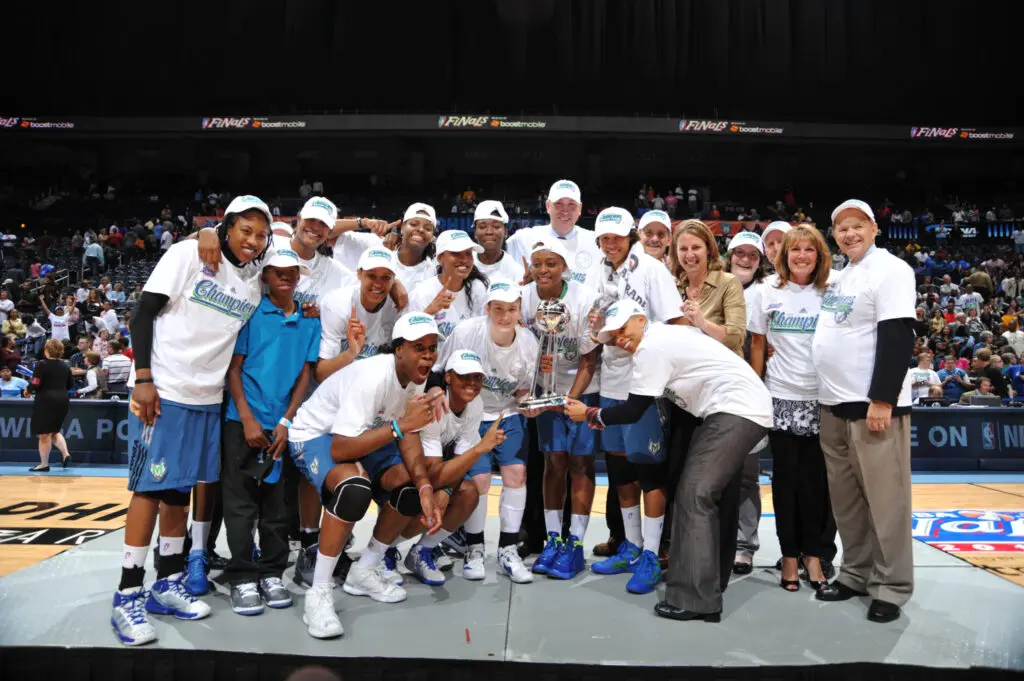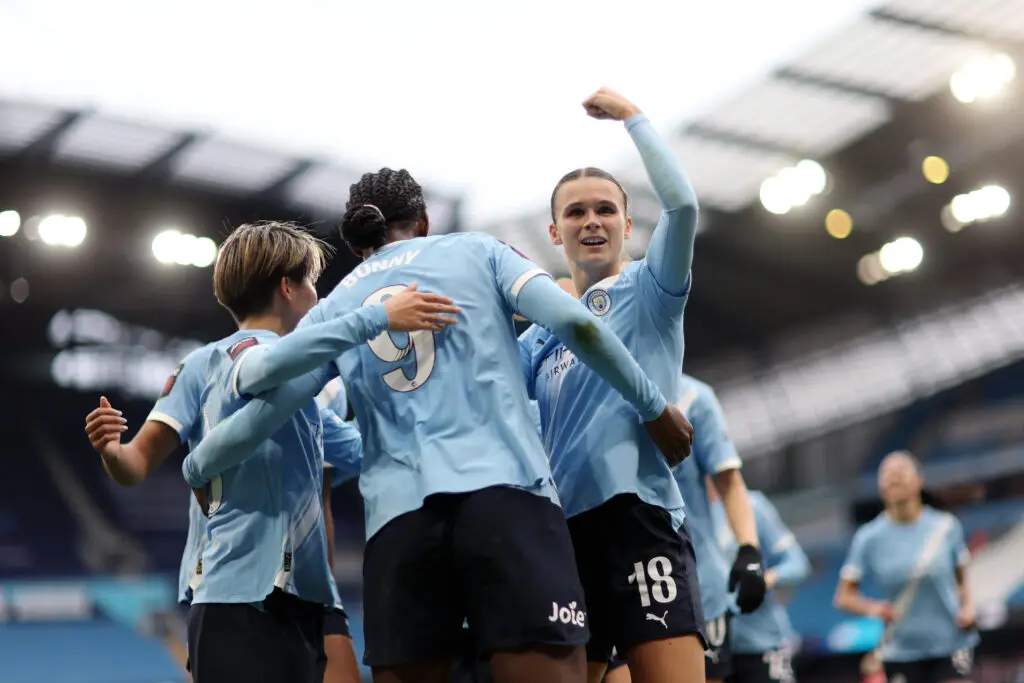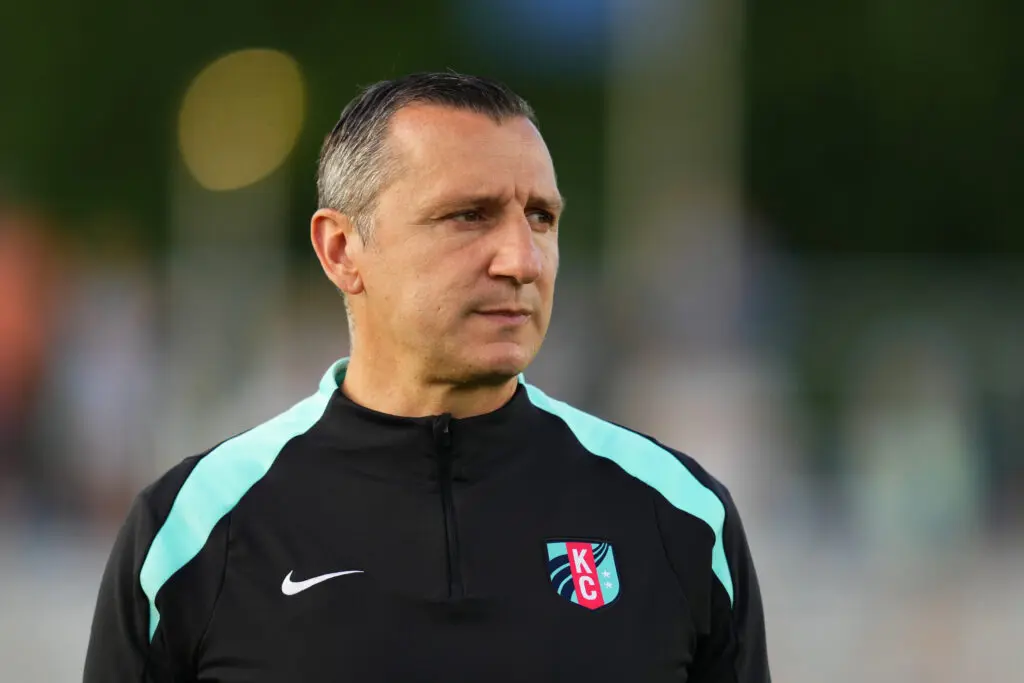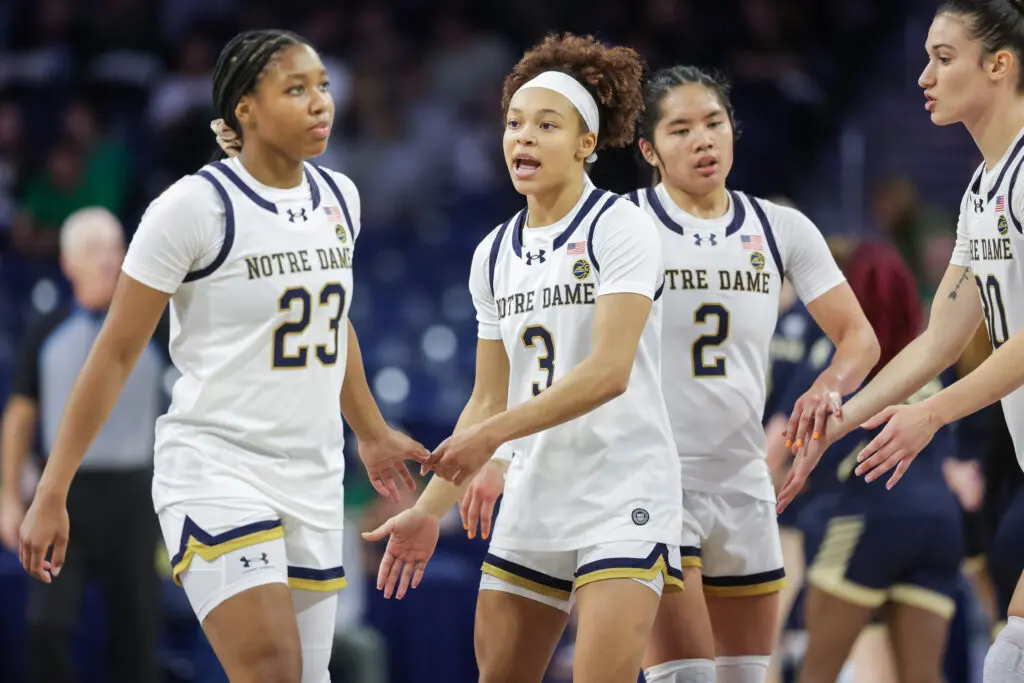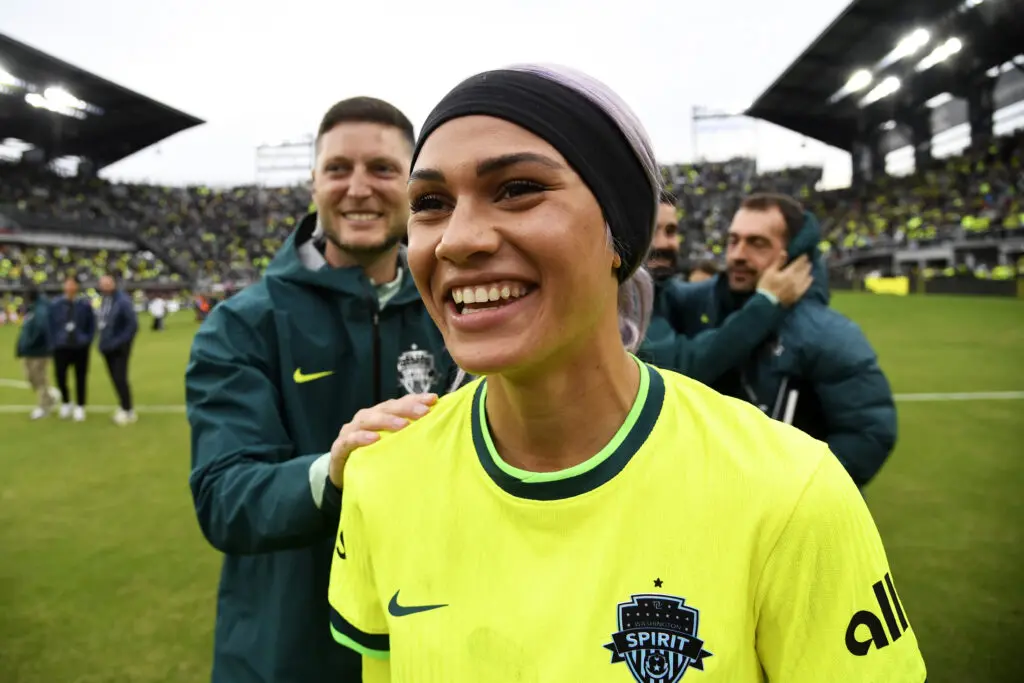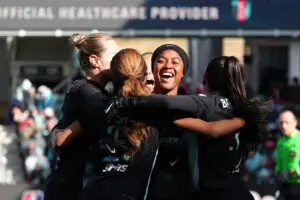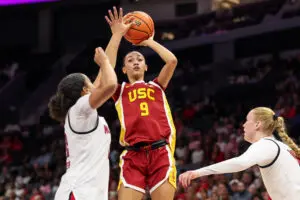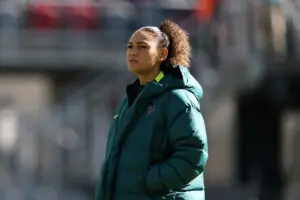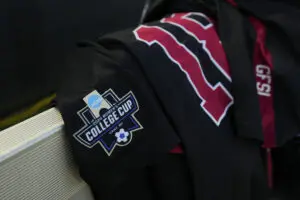Look up at the ceiling of the Target Center in Minneapolis and you’ll see banners scattering the rafters. The majority of them belong to the Lynx, Minnesota’s WNBA franchise. Their four WNBA championship and six Western Conference championship banners overlook the court and symbolize the Lynx’s dynastic dominance of the past decade.
It wasn’t always this way. In the years after the Lynx became a franchise in 1999, they made the playoffs twice (2003 and 2004) and never advanced to the conference finals. The lack of success felt commonplace in a market defined by the continual disappointment of the NBA’s Timberwolves and NFL’s Vikings.
That all changed ten years ago in 2011, when the Lynx went from the bottom to the top of the WNBA in one season and won the franchise’s first championship. It was the culmination of a 12-year journey, one that made the Lynx the first Minnesota professional sports team since the Twins in 1991 to bring a title home.
Cheryl Reeve arrived ahead of the 2010 season and began assembling a team that would capture basketball fans in Minnesota and across America, making history in the process.
On Dec. 8, 2009, Cheryl Reeve was named the head coach of the Lynx. She arrived after four seasons as an assistant coach with the Detroit Shock, where she won championships in 2006 and 2008. In her first season with the Lynx, the team went 13-21 and missed the playoffs for the sixth straight year.
Cheryl Reeve, head coach/GM: I spent 10 years waiting for my opportunity to be a head coach. After it was announced that the Detroit Shock would be relocated, I sat down and asked myself, “What do I want?” And I wanted to be a head coach. I reached out to Roger Griffith (Lynx executive VP/CFO) — he didn’t have an opening at the time, but I mentioned that if he were to have an opening, I’d be interested in talking. Safe to say, negotiations with the Lynx’s current coach at the time changed. Next thing you know, I’m the head coach of Minnesota.
Candice Wiggins, guard: When I first got drafted to Minnesota, it was a very depressing mood. It was very accepting that we were just the worst team. Players would say that we’re not only the worst team, but also the worst city. Teams would come to Minneapolis and party the day before. Because we were such a joke, it was an acceptance that we were going to lose. That was a battle for me, and it was depressing as someone who is a competitor and an optimist.
Taj McWilliams-Franklin, center: At that time, Minnesota wasn’t a free-agent destination. You didn’t go to Minnesota because you wanted to. You went to Minnesota when you’re washed up. At 41, I didn’t think I was washed up per se. I knew I had a couple of good years left in me.
Rebekkah Brunson, forward: The Lynx weren’t really good. Around the league, it was perceived as one of the weaker teams. It wasn’t because they didn’t have the talent — you always felt like they were on the cusp of being really good. But they would have injuries or things would happen where they just couldn’t get over the hump.
Lindsay Whalen, guard: It was a very rocky first year. We went through a lot of adversity, but there were some glimpses of good things we were able to do.
Reeve nearly single-handedly turned Minnesota into a free-agency destination. Players gravitated toward Reeve because of her experience coaching championship teams and her competitive nature.
In Reeve’s first offseason, the Lynx selected Rebekkah Brunson in the Sacramento Monarchs’ dispersal draft. Then, they traded for former Minnesota Gopher Lindsay Whalen, while Taj McWilliams-Franklin, who played with Reeve in Detroit, came to the Lynx via free agency. Together, they started to buy into Reeve’s mission to transform the culture in Minnesota.
Alexis Hornbuckle, guard: I asked to be traded to Minnesota (in 2010). Cheryl Reeve was my assistant coach in Detroit. She is very knowledgeable when it comes to the game of basketball. She knows how to put the right pieces together to form a championship-caliber team.
Monica Wright, guard: With her experiences at other franchises, Cheryl knew what it would take for a team with that much talent to win. She was not afraid to express her opinions on what she thought would help us.
Shelley Patterson, assistant coach: Cheryl is a winner. 2010 was just the build-up. It was Cheryl trying to get this young team to have a blue-collar, hard-nosed, tough culture. We had to do that with some young players that had never been leaders before.
Jim Petersen, assistant coach: Cheryl’s one of the most demanding people I’ve ever been around. If something wasn’t done to the level of excellence she wanted, she let you know about it. She demanded that we come up to her level of seeing the game. When I scouted a team, she’d ask me questions that I’ve never thought of. She’s helped me become a better TV analyst because she made me look at the game in a more detailed way.

The Lynx won the WNBA Draft Lottery and selected UConn star Maya Moore with the first overall pick in the 2011 draft. Moore was coming off of one of the greatest women’s college basketball careers of all time. A two-time NCAA champion and Player of the Year award winner at UConn, she lost just four games in four years and remains the only player in Division I history to accumulate 2,500 points, 1,000 rebounds, 500 assists, 250 steals and 150 blocked shots.
Drafting Moore changed the Lynx’s outlook instantly, with a future franchise player joining an already stacked roster. But it was also Moore’s positive personality and youthful energy that made her an impactful teammate that season.
McWilliams-Franklin: Maya was always mature and smart for her age. She wasn’t ever going to be one that needed to be reined in. I remember we had a team barbecue that Seimone (Augustus) hosted. Maya came over and played the guitar, the four chords she knew. They were always singing in the locker room. They would do their crazy stuff and I was like, “OK, enough.” That’s why Wiggins coined the phrase for me, “Mama Taj.” I think that helped us not be too serious, but also not too silly.
Hornbuckle: The locker room was a source of entertainment with Seimone and Maya. Whether it was singing, dancing, jokes, they were always the source of entertainment. You can count on those two to put a smile on your face.
Wright: Maya put us over the edge. She already had come off an outstanding college career, full of championships and accolades. Having Maya shook the league and made everyone pay attention to us.
Patterson: From day one of training camp, Maya was on fire. Her elevation, her layups, her competitiveness. You knew she was special.
Petersen: I’ve always said that UConn players are “plug and play” — they are ready to go right away. Maya was “plug and play” on a whole other level. What stood out to me was Maya’s ability to have confidence in herself to perform.
Reeve: You’re talking about one of the most heralded college players. This was a perfect team for Maya, given the superstars we had. She fit right in because these superstars were some of the most selfless players of their caliber.
Moore, Augustus, Brunson, McWilliams-Franklin, Whalen, Wiggins, Hornbuckle, Wright, Jessica Adair, Amber Harris and Charde Houston all arrived at training camp in 2011 with a different mindset. From intense practices to team bonding, the culture Reeve had preached was beginning to take shape.
Reeve: I wanted to be a better coach than I was in 2010. I remember the training camp, the preparation, the planning, the practices like they were yesterday. I remember the joy of competing and the players loved it. It was magical how the group got together, and the chemistry was instant. All of us were motivated — we weren’t going to be a non-playoff team again.
Seimone Augustus, guard: We didn’t know what training camp was going to look like. You put those types of great players together, you never know if they’re going to sacrifice for one another or if everybody is going to revert to being the stars that they were on their respective teams at one point in time. I remember after the first day of practice, we bust the practice guys’ ass, and we were like, “Oh yeah, it’s on.”
McWilliams-Franklin: When the coaching staff brought in the guys, it was the worst. They were athletic dudes who knew they were supposed to run in and rebound every shot. You had to try and find them, boxing out as quick as possible without fouling. We didn’t take possessions off… It was worth it because it established an “us versus them” mentality, and no matter what happens, you continue playing.
Petersen: From the very first practice, we stood around the center-court circle. A rhythmic clap would commence. Where you stood at the very first practice would be your spot for the rest of the season. Cheryl would call on players before and after practice to make comments on what needs to be done, what happened during practice and how to move forward. I thought it was super important to the dynamic of our team. There are days where you don’t want to go to practice, but once you get in that circle, you’re looking at each other, you’re counting on each other.
Patterson: To this day, I used the term shot-makers, not shot-takers, because everything was a competition. It was always about how many stops you can get in a row and holding each other accountable. If you didn’t fit into the culture, you wouldn’t be here.
Wiggins: Every day, Coach Reeve would throw us a new challenge. It got to the point where we asked, “How much can we be challenged?” Those daily challenges became fun because you’re thinking about building a dynasty. It’s not just one championship, you’re talking multiple championships. You’re talking about people who love to win, to compete and to play together for a long time. It happened right away.
Whalen: It’s probably the best training camp I’ve ever been around.

After starting the season 5-1, the Lynx lost three of their next five games. The team didn’t let the blip become permanent, winning three straight heading into the All-Star break and rattling off six in a row afterward.
Augustus: When we got to the All-Star break, people did not believe that the Lynx were any good: “We’ve seen this before. They’re going to go on a 10-game losing streak.” But this wasn’t the same Lynx. And we knew it, and people in that All-Star locker room knew it, too. After we came out of All-Star break, we just hit another level.
Wiggins: There were those moments of decision after games where we were busted in the mouth. Taj was the one who would calmly explain and talk us through the reality checks. There were games where we had to make a decision: “Are we really going to believe and trust in ourselves or are we going to go back to the doubt?”
Whalen: It was something that we needed to go through as a group. It’s inevitable because the talent is so close and the league is so good. It’s what you do in those moments as a team to recalibrate. That’s how you get through it.
Wiggins: I was an encourager. That’s where I formed my identity as the cheerleader of the team. That’s where the inspiration of the “Los Lynx” chant came from. It was easy for me to come up with steps and routines as I was in a sorority in college. That cheer worked really well throughout the team.
The Lynx finished the regular season with a WNBA-best 27-7 record. They met the San Antonio Silver Stars, led by Becky Hammon, in the first round of the playoffs.
After squeaking out a win in Game 1, 66-65, the Lynx dropped Game 2, forcing a do-or-die third game. In front of an electric Target Center crowd, the Lynx won in convincing fashion, 85-67.
Reeve: I remember how hard it was, the ups and the downs. It’s only a three-game series. Luckily for Game 3, we were at home. That was the trademark of the team — the ability to perform under pressure. The clutch performances in that game became the hallmark for many of our players.
Brunson: They were going to give us their best, but it’s no different in that if you feel like you’re going to play for each other, you’re going to be confident. You have great defenders, you have great leaders and if you have all of those things, then you’re going to be able to pull out tough games.
Petersen: We could have easily lost Game 1. We did lose Game 2, so they could have beaten us three straight. We felt like once we got through San Antonio, that we needed to be on point after that.
Whalen: I remember I could feel like Cheryl did not want to lose this opportunity with this team. She didn’t want to let it slip away and have it be a year where we made the playoffs, had this great record, and we lost. Obviously it’s win or go home, and it was already intense. I just remember feeling the intensity from Cheryl. Looking back now at those moments, I’m thankful that she brought that intensity because we needed it.

The Lynx swept the Phoenix Mercury 2-0 in the Western Conference Finals to advance to the WNBA Finals for the first time in franchise history. Minnesota fans everywhere began to take notice, showing up in waves to support their team.
Hornbuckle: We brought in a good crowd almost every game, but once we started to win consistently, you saw the seats start to fill. As a player, it gives me chills just thinking about it.
O’Nika Craven, contributor, Minnesota Spokesman-Recorder: Once the Lynx got deeper into the playoffs, you started hearing local radio and TV stations talk about the Lynx as something to be recognized and reckoned with.
Wright: We had great fans, but as we got closer to the championship, you saw the excitement. I mean, we had a lot of fans in Atlanta when we won. Seeing that throughout the years, and then our traditions started to take place, it was great for the city.
Reeve: Lindsay always used to tell me, “Coach, if we win, they’ll come.” In 2010, I could hear people in the crowd. Now I don’t hear anything. In 2011 during the Finals, I remember walking into the bowl and looking around, saying to myself, “Holy shit, we did it.” The fact the fans recognized what that team was, it was really cool. They just made that run that more special.
Taking on the Atlanta Dream in the WNBA Finals, a best-of-five series, the Lynx trailed at halftime in each of the three games. But this group didn’t resemble the Lynx teams of the past. The resilience they’d developed throughout the season prepared them to overcome the deficits.
Reeve: This wasn’t a young group we had. They understood that it’s a long game and there are going to be runs. We always talked about the ability to stop the bleeding. That group knew what it needed to do next and never got overwhelmed.
Brunson: If there was time on the clock, we were going to compete.
Wright: Some people in that position just lay an egg. But being down in all three games brought out certain things in our players that we didn’t even know existed. It showed us who we have next to us daily, who we have grinding with us, and it happened to be a good result.
Augustus: Any given night, anyone can be beaten. But I looked around the room and I was like, “No way we make just the playoffs. We might be in the playoffs. We might be champions.”
Patterson: We were on the bus going to practice and I was sitting behind Cheryl. She turns to me and says, “Hey, let’s find out where we can get a venue to host a postgame party.” We got the champagne ready. We had a premonition that we were going to win.
On October 7, 2011, the Lynx defeated the Dream 73-67, sweeping the Finals and capturing the franchise’s first WNBA championship. Augustus, who averaged 24.7 points per game in the series, won WNBA Finals MVP.
Whalen: We won that series because of Seimone Augustus. She was the best player at the time. She’s the reason we won.
Wiggins: The first person I went to hug was Seimone. We were together during those struggling years of the Lynx. Throughout our conflicts and camaraderie, the good and the bad, to have that moment, this is the beauty and power of sport. Imagine living your existence, every single thought that you have in your mind is achieving this goal, being consumed by an impossible dream, and then it happened. It was unbelievable.
Reeve: The journey is so hard. You sacrifice relationships with your family, you miss out on a lot in the summer. You sacrifice your mind and body. When you reach that point, it’s overwhelming. Seimone represented that. Her journey was difficult. She was injured in 2009 and she was told that she should leave Minnesota. For the preparation to come full circle, she was overcome with emotion. I was really happy for her.
Petersen: I never won a championship in high school, college or the NBA. This was the first championship I was a part of. My sister and her husband were there. It was as exhilarating as anything I’ve done in sports. It was the best experience and it made me want to go do it again.
Wright: I felt complete happiness and excitement. I was ready to go back to the locker room and scream with my team. The benefit of winning on the road is the flight back and seeing the sea of fans that are there welcoming us back. It’s a memory that lasts a lifetime.
Hornbuckle: It all comes flooding in. The hustle, the heart, the pain, the losses. All of it comes full circle and you’re relieved, you’re excited and happy for your teammates who may have won their first championship. I was the one who was screaming and jumping. It was overwhelming.
Patterson: Going from worst to first, it’s only something you dream about.
Brunson: I felt pride. Understanding everything that we did to get there and all the things we sacrificed, it was all worth it.

Reeve coached the Lynx to three more championships in 2013, 2015 and 2017, cementing one of the historic dynasties of the WNBA. Augustus, Moore, Brunson and Whalen played on all four of the Lynx’s championship teams.
Today, only Reeve and Brunson remain with the Lynx on the coaching staff. Moore left the WNBA to focus on criminal justice reforms. Augustus retired this year to become an assistant coach with the Los Angeles Sparks. Whalen is the head coach of the women’s basketball team at Minnesota, her alma mater. McWilliams-Franklin works for the WNBA league office in player relations. Wright is an assistant coach for the University of Virginia women’s basketball team. Hornbuckle is a certified personal trainer. Wiggins hosts an online basketball show on her YouTube Channel called “BBall Pro Insider.”
Ten years on, the 2011 Lynx team continues to be remembered and celebrated.
Augustus: We had swag. We developed the “Los Lynx” chant that we would cheer walking down the hallway to get ready for the game. Our identity was formed in that year. It set the tone for the next eight years where we went on a run. That 2011 team will always be the greatest team in Lynx history.
Wiggins: You go to Minneapolis and it’s a Lynx city. You hear the name “Minnesota Lynx” and you get this good feeling. There’s the feeling of hard work, professionalism and discipline that makes you feel proud.
McWilliams-Franklin: I’m so thankful that Coach Reeve saw something that I had, which was worth the time and energy to put a stamp on a franchise that, up until that point, had been in the cellar. I’ve never felt so good about the legacy I left behind with the Lynx, because they made sure that I was important at that time, that I’m not a footnote.
Whalen: It was one of the first times I won as a player. That team showed me a lot about what it takes to win. It changed my life.
Wright: It was the start of a legacy, the start of something we all will never forget. The championships that followed all were built from that 2011 team.
Hornbuckle: We laid the groundwork of what you need to bring to Minnesota if you are drafted or traded there. They’re bringing you in to win another championship.
Petersen: The legacy is still being written because Cheryl is still the coach and she’s got another successful team down the pipe. The respect that this team got and the way they’ve opened up eyes to how great women players are, it’s had a wide-reaching effect on women in sports.
Craven: The Lynx gave Minnesota a winning team. It gives young girls an opportunity to dream about being something more.
Reeve: There are so many characteristics of that team that I tried to make sure that every team going forward since then has. Even though there are different players, we can still have that identity. The culture of that 2011 team laid the groundwork for a decade and more. We’re trying to make that the fabric of everything we’ve had. We’re still standing on that culture.
